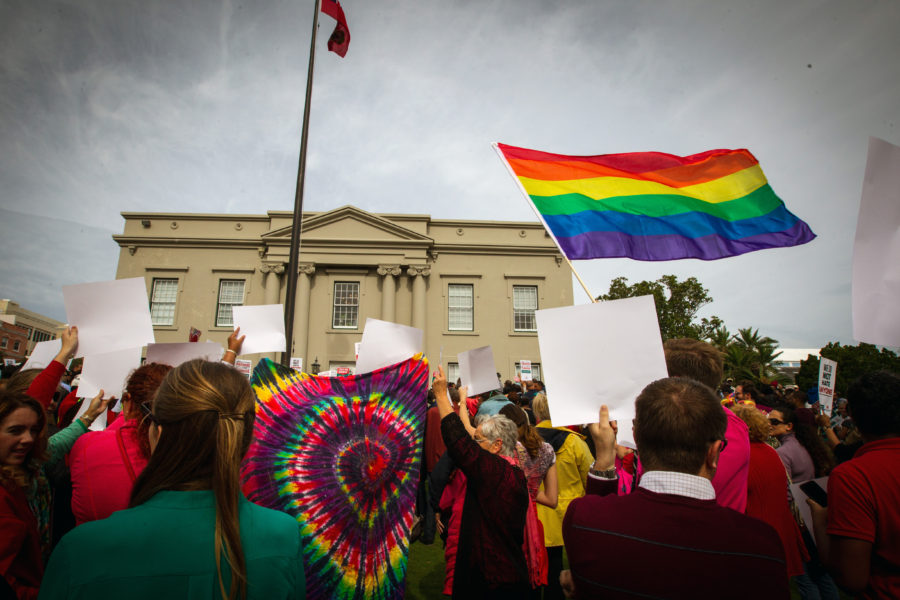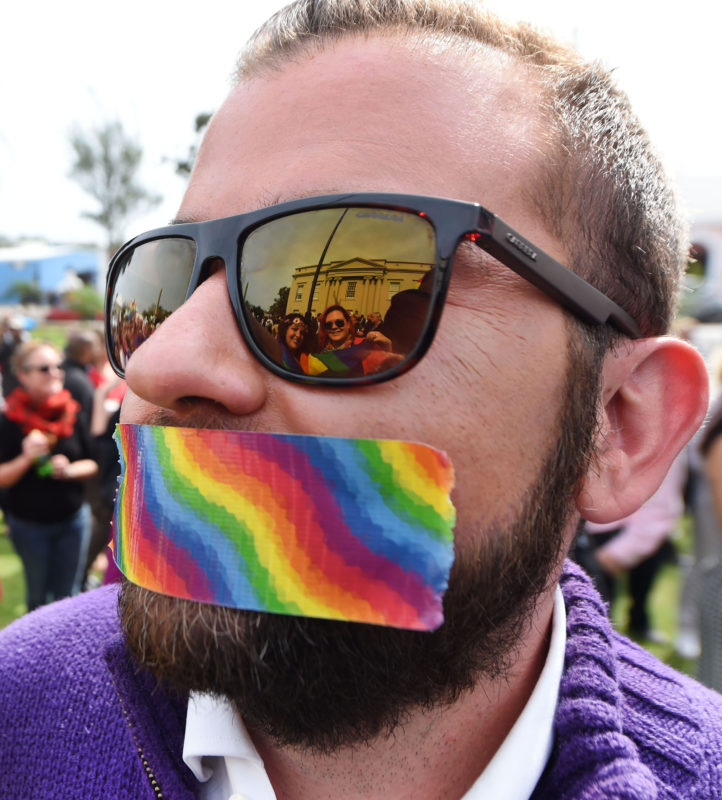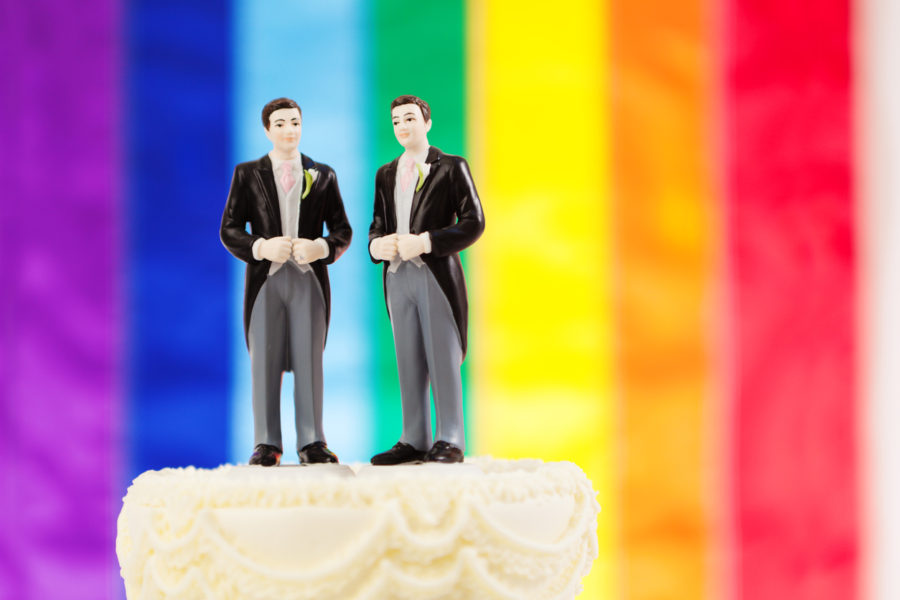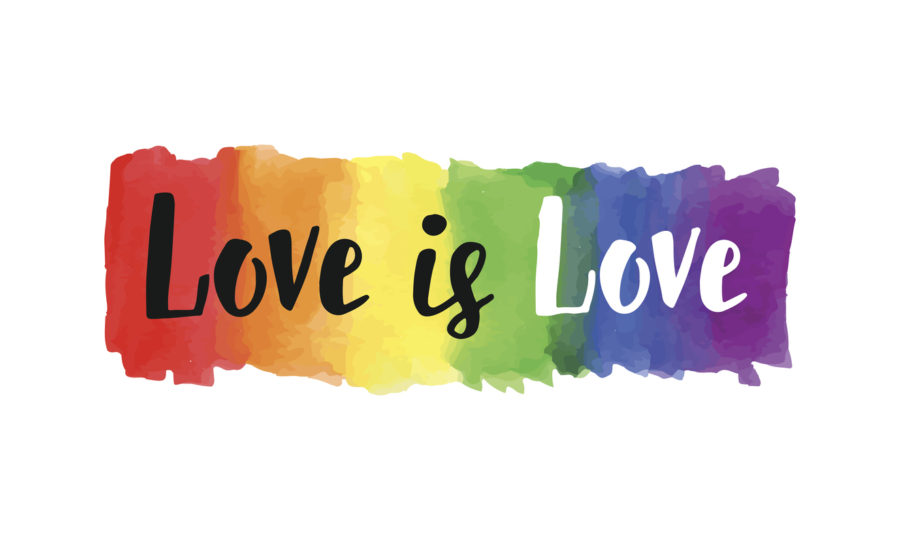Is marriage a right that should be afforded to all, or merely the preserve of the religious and the straight? Your answer depends on your point of view, but there is little doubt that society’s views on the matter are evolving. In Bermuda the argument is as passionate as ever, but it is only one of several issues surrounding the gay community here.
There is a certain inevitability about Bermuda’s gradual move towards marriage equality. History shows us this; it is invariably the result of acknowledging that civil rights previously only available to straight couples should be afford to all.
In the successful fight against Proposition 8 in California, in the Civil Partnerships Act of 2004 in the United Kingdom and the subsequent Marriage (Same Sex Couples) Act 2013, the law eventually caught up with the evolution of society itself. In Australia last year 61.6 per cent of the population voted for marriage equality in a postal referendum after years of ineffective debate in Parliament.
In Bermuda the passing of the Domestic Partnership Act 2017, which overrides the Human Rights Act 1981 and removes the rights of gay couples to marry, means the argument is going back to court, again. If the not too distant past is any indication the judiciary is likely to rule in favour of those who support equality in marriage, continuing the precedent set last year by Puisne Judge Charles-Etta Simmons in the Godwin & Deroche v The Registrar General, the Attorney General et al case.
In her judgment Mrs Justice Simmons said that denying these rights against the backdrop of changing attitudes towards same-sex relationships was “out of step with the reality of Bermuda in the 21stcentury”.
Among opponents to marriage equality in Bermuda there is a grudging acceptance that the battle will eventually be lost. The passing of the Domestic Partnership Act prompted Pastor Paul Heffernan, of the Evangelical Church of Bermuda, to tell the religious website onenewsnow.com: “If it [the process] is going to follow the regular pattern that we’ve seen globally then I believe that it [the Domestic Partnership Act] will be a stepping stone unless the Lord intervenes in some way.”
Unfinished Business
In the 26 countries around the world that have recognised same-sex marriage God has been strangely silent on the subject, considering the insistence of most religions that homosexuality and same-sex marriage is an abomination and those who are gay face eternal damnation.
Instead, life has carried on as normal, and the fears expressed by C.V. “Jim” Woolridge during the passing of the Stubbs Bill in 1994, where same-sex marriage in Bermuda might be said to have its roots, have not yet come to pass.
The Private Member’s Bill, named after Dr John Stubbs, decriminalised sex between men in Bermuda some 27 years after it had been decriminalised in the United Kingdom. In a heated debate in the House of Assembly, which was punctuated by the removal of Bishop Charles Foster Fubler of the Christian Coalition from the public gallery, Woolridge, then the UBP’s tourism minister, voted against the motion, saying: “Bermuda up until now has been referred to as a paradise. Soon we’ll be known as the fairyland.”
The process in Bermuda towards granting a minority group rights that the rest of us take for granted has largely been about forward and backward steps; and the clash between progress and religion has changed little in the intervening years.
In 1994 Dr David Dyer of the UBP attacked his Government for not bringing the Stubbs amendment forwards itself. “There was a serious lack of judgment, and even cowardice,” Dr Dyer told the House. He called on black colleagues to remember the past. “Many of your ancestors were locked up for something they had no control over, and those doing it felt justified in doing it.”
It is a sentiment that would not have been out of place when judging Premier Michael Dunkley and the OBA’s approach to the non-binding referendum on same-sex marriage in 2016. The rebranded UBP did at least advance the issue with the passing of the Human Rights Amendment Act 2013, which prohibited discrimination against anyone on the basis of their sexual orientation. It was this Act that opened the door to the ruling by Mrs Justice Simmons last year.
Progress has been slow, painfully so at times, but every block that has been thrown up has been overcome, eventually. Bermuda was not ready for Renee Webb’s attempt to introduce a Human Rights Amendment Act in 2006 – a proposal that was met with deafening silence in the House at the time.
Faced with Wayne Furbert’s Private Member’s Bill for solidifying in law that marriage is between a man and a woman, the Domestic Partnership Act, which still does that, but, also gives some, though not all, legal rights to those in domestic partnerships, was the best that Walton Brown and the Progressive Labour Party could have reasonably been expected to achieve.
History will undoubtedly show it to have been a step, one of the last, on the road to marriage equality.

It is impossible to discuss the relationship that Bermuda has with members of its LGBTQ community without discussing marriage, but that is far from being the whole story.
Convincing either the Christian right, or those on the other end of the spectrum, to change their minds on the marriage issue is about as likely as convincing members of The Flat Earth Society that they won’t sail off the edge of the world at some point. So entrenched are the respective positions that short of God Herself descending from the heavens to settle the issue, nothing seems likely to bring these two groups together.
However, in Bermuda, something has been lost in all the noise, in the hateful rhetoric spewed by those on both sides; and that is the people behind the headlines. In many ways the Domestic Partnership Act and the push for marriage could be said to be putting the cart before the horse in a country where; gay politicians and gay Premiers have not been, and are not able to be, open publically about their sexuality, where gay sportsmen and women remain resolutely in the closet, and where members of the LGBTQ community still feel uncomfortable doing something as simple as going on a date.
In discussing the Domestic Partnerships Act, Walton Brown, the island’s Minister for Home Affairs, said the aim had been to “strike a fair balance between two currently irreconcilable groups……..Bermuda will continue to live up to its well-earned reputation as a friendly and welcoming place, where all visitors, including LGBT visitors, will continue to enjoy our beauty, our warm hospitality and inclusive culture”.
Not everyone agrees with that final sentiment, no matter how genuinely Bermudians feel it to be true.

Andrew (not his real name) is a young, gay, black Bermudian. He has not yet felt able to tell his family, who he no longer lives with, that he is gay, although they know anyway from family friends. This is his story:
“I’ve known I was gay my whole life; I didn’t know what the closet was until I was in middle school when the bullying started. I was constantly picked on, and bullied, my first year at middle school I was jumped by five guys, in high school it all stopped, but people still talk about me today.
I think I was picked on because I was flamboyant, and because of the attention I was getting from the girls, I guess. They [other people] couldn’t accept that I was being true to who I am, and sometimes people pick on you because they are insecure about themselves. They find a way to intimidate you because you are doing better for yourself, and they can’t do that.
I still get dirty looks from people when I’m walking around town, but I brush it off because their opinion doesn’t mean anything to me. But that’s just me, I’ve been through it already so there is nothing you can say or do to me that can affect me now – I really don’t care.
As far as my family is concerned they didn’t find out until a couple of years ago, but they didn’t hear it from me, they heard it from other people who were talking about me. I was always insecure about coming out; I was always flamboyant, but I always denied that I was gay.
They still haven’t heard it from me, personally. But they have speculated and come to the conclusion themselves, so I didn’t really have to tell them, which kind of made it easier. But, I did move out last year, which eased the tension on my part.
My support system is mainly friends now. Right now I’m living with a roommate, and he’s also gay. His family is fully supportive of him, well us I should say, and I am thankful for that. I guess it is hard to find supportive families [in Bermuda] because a lot of people are Christians and believe what the Bible says about homosexuality, and that things should be a certain way because society says so.
I do feel that things are changing for the better though. The younger generation is more accepting of the LGBTQ community because they’ve seen more, travelled more, they’ve learned more and they can fully grasp the bigger picture, as opposed to the older generation who were stuck on this small rock, and limited in their understanding of the world.
I just want to see more acceptance from the rest of Bermuda, more happiness, more honesty, more freedom for people to openly express themselves. I want gay politicians to stand up for people like them. I heard a gay politician having a discussion about this, and their argument was that they were representing the people and they had to do what the people want. But, we’re still the people as well, you’ve got to represent us, it goes both ways.
It has taken time over the years for me to become comfortable with who I am. I fully understand myself, and know exactly what it is that I want out of life. If someone who was in the closet came to me I would tell them to be true to who they are. You will have some people who will threaten you, but there are people out there who will support you, who will be with you.”
I like men

The assertion that Bermuda is a “friendly and welcoming place” with an “inclusive culture” is one that its residents repeat proudly for all that will listen. It has formed the basis for many a successful tourism campaign and, like any mantra repeated often enough, is held to be true.
Of course, that perception all depends on whether or not you live in the Bermuda bubble, and whether you are part of a community – straight, Christian, conformist, not a guest worker – that the island’s permanent residents believe worthy of inclusion.
There is, as Kirkland Hamill wrote in his column on advocate.com, an ugliness that lies just below the surface of turquoise waters, pink beaches, and constant smiles that greet the unwary. Kirkland should know. The son of a Bermudian mother who brought her children back to the island when he was eight years old, Kirkland believes the island’s ‘charm’ can also mask a deeper reality.
“I’ve been thinking about all the things that Bermuda and the Bermudian people are; and all the things that they aren’t,” Kirkland says. “I haven’t met people friendlier than Bermudians, but it’s often an aggressive friendliness. There is an aura about the place, that kind of veneer of being really intimate and close. Everything looks so beautiful and inviting, it’s almost like it creates this wall to [prevent you] going a layer or two deeper to anything that is authentic.”
For Kirkland the inclusivity that Walton Brown referenced when discussing the Domestic Partnership Act only applies to some. “If you are an extroverted, straight, masculine guy, Bermuda may feel as much of a paradise on the inside as it looks on the outside,” Kirkland says. “Where it gets tricky is where you step outside of that lane.”
The need to remain resolutely friendly, to not rock the Bermuda boat, has caused its own issues, at least from Kirkland’s perspective. “I think there is a correlation between Bermudian superficiality and the amount people on the island drink; stay drugged in order to accommodate contradictions, avoid complexity, and maintain the appearance of easy-going homogeny,” he says.
“I think there is a systemic inability to confront difficult topics. I think many white and black Bermudians would say, ‘well, we get along great, there is no problem’. Whereas, people looking from the outside, would notice the racial tensions immediately.”
In that context, for Kirkland, religion too is a drug, used as a cloak of truth when convenient. “I believe that most Bermudians don’t know how much pain is generated by their religious certainty or how cruel is their righteousness,” Kirkland wrote in his column.
The debate over marriage equality has certainly brought that cruelty to the surface, and exposed to the world the refusal of large numbers of the island’s residents to even acknowledge the existence of gay people in their midst.
“There is no gay community in Bermuda, no safe space. I think the fact that it [a safe space] doesn’t exist there means the community can never really develop.”
“When I worked with the Human Rights Campaign we opened a satellite office in Mississippi, and there was a lesbian couple who gave me a profound insight into their lives. They said they discovered one day that even when they are in their home that they sat on the opposite side of the couch from one another because they were so conditioned, even in their own home, to feel like they had to maintain some sort of distance. I would say some place like Mississippi, or the Deep South, is where Bermuda is right now, or [Bermuda] is even a little further behind because even in Mississippi they [the gay community] have spaces to come together.”
Kirkland, who now lives in Washington D.C., believes that while incremental change in the acceptance of gay communities in the rest of the world has led to marriage equality, the reverse could be true in Bermuda.
“I think you can actually start [with marriage] and it can backfill from there,” he says. “Certainly the fact that it [marriage equality] happened and then was taken away, I’m hoping is going to create enough discomfort in the economy that the politicians are going to have to start reflecting on those things because the marriage issue forced it.
I like girls
Liz is a foreign guest worker, she has been in Bermuda for several years, and comes from a liberal country where there is a greater acceptance of people from the LGBTQ community. She agreed to talk about her experiences on the understanding that we change her name.
“The dating scene in Bermuda is almost non-existent. Although I date, this is via chance meetings not through any type of scene. The atmosphere means you can’t ever really relax on a date. I generally do not feel comfortable giving any indication during a date that it is more than two female friends having dinner.
“As a foreign gay woman I do not really have any issues, outside the scarcity of potential partners, and the lack of a supportive gay social group. However, I think life as a young gay black Bermudian man would be very difficult.”
“I don’t think that there is a difference between young and old when it comes to acceptance, the split is more along racial lines and level of education. There needs to be a greater effort to bring the two communities together. I would consider that many Bermudians don’t actually know a gay person, or think they don’t.
“I work and socialise with young Bermudians who do not support gay marriage, but change their mind when talking to someone it would affect, and whom they like on a personal level. In these cases it was an education problem, and they had never actually associated with a member of the gay community.
“Having an openly gay politician could help, but I would not think an openly gay man or woman would have a successful political career in Bermuda. But, it is more important to be on the inside, in the room where the decisions are being made in hopes of making life better for your gay countrymen/women than being out on the streets waving the flag.
The church leaders and the power they hold over the government angers me. Church leaders should really be looking at all the Bermudian children born out of wedlock before they start pointing fingers at the gay community who want to go down the traditional route of marriage, then children.”
I like, who I like
Shae, 30, Bermudian: “I don’t have the typical “coming out” story. I didn’t go through a phase in high school of trying to figure out my sexual identity like most on a timeline. It wasn’t any pressure for some sort of big reveal, if you will – I was just ‘me’ going through my own process without bringing attention to how I felt. I knew that I had an attraction towards females, but it wasn’t a shock to me that I found them attractive. I can’t say that in my teens I even understood what I was feeling. There were moments where I would feel a connection with a close female friend, but I always chose to keep it to myself, or simply thought that it was normal, and I’ve never really been good at expressing myself verbally. I wasn’t looking to pursue a female, and was in a serious relationship with a guy until I was 24. Growing up I went to church on a regular basis and was involved in the youth group ministry, so I tended to ignore what I was feeling anyway. After all, it wasn’t appropriate according to my upbringing.
Things became a little interesting when I befriended a woman that was older than me through mutual friends. I was a bit naive towards how everything eventually played out. We exchanged numbers and went out together for a few months. You would’ve thought we were best friends due to how we interacted with one another and how often. One evening I went over to her house because she wanted to speak to me about something. It took her forever to get to the point when I arrived. She was fidgety, displaying nervousness. I was thinking she had done something ridiculous and didn’t know how to tell me. When I was about to leave to pick up something she stopped me by the door. Nothing was stated, it was only movement – her movements that made me freeze. We kissed, passionately. I left without saying anything because I was rattled. I enjoyed it, but was left speechless and confused.
After I had accepted what happened that night, we both spoke about it. Like me she also came from a similar Christian-based background. Her father was actually a pastor; she had a child and was in a relationship with a man. As we started talking about “well where do we go from here” I caught myself thinking logically about what needed to happen. She was more on the emotional side of things, willing to follow her feelings that she had towards me. I just didn’t know how to handle the matter. I felt the same, but chose to ignore my feelings because I didn’t want to be shunned by family members/friends and whatever other dramatics came with it. Ultimately, I ended up lying to her. I told her that I didn’t feel the same way, I guess because from my end I needed to dig deeper within myself. I needed to figure out what I chose to neglect for a very long time.
There were questions that I couldn’t answer. Was I gay now or was I considered bisexual?
I found myself looking at the descriptions of each letter represented by the gay community – LGBTQ. When I researched this it didn’t really make much sense still. I wasn’t any of these descriptions. What I am is apparently a Pansexual, meaning I like who I like. Whomever I have a pull towards is not limited to a person’s gender.
As I’ve gotten older I’ve truly realised the importance of being true to self, and that it really isn’t the end of the world to have a feeling towards someone of the same sex, someone that is a transvestite, or identifies differently. We’re all human. We all have feelings, and just because someone’s sexual preference may not align with yours doesn’t make them less human. Love is love.”
Right to love
Marriage equality is not about same-sex couples wanting to stand in front of an altar to say ‘I do’, although those of faith may well wish to do so. It is not about creating a legal basis for forcing churches to conduct marriage ceremonies against their beliefs; Britain’s approach has been to create civil and religious marriage. It is not about saying one group’s rights are more important than another group’s. Similarly, marriage does not belong to religion. As a word, as a concept, its roots are far older than most of the ones we still practice, as is homosexuality. Through hundreds of thousands of years the world has not ended because two men, or two women, loved each other. Faith should be a personal matter, between a man, woman, or those of alternative gender, and their god. Too often it has been used as a justification for subjugation, and things far worse than denying two people the right to be happy.
And that is ultimately what it comes down to; happiness, sadness, for better or worse, in sickness and in health – the right to experience life in all its forms with those you love most. A ceremony does not have to be religious in nature, many straight couples today don’t want to get married in a church, but they do want to be able to declare that love in front of family and friends.
But beyond love, beyond the joy of committing yourself to someone, there is the right to be consider human, not matter what. And if you are denied legal rights and protections that others have, you are deemed by them to be less than human. History has shown us what happens in this instance.
Mildred Loving knows something of the fight for equality, this is what she said in 2007, on the 40thanniversary of her famous court case: “…..I am proud that Richard’s and my name is on a court case that can help reinforce the love, the commitment, the fairness and the family that so many people, black or white, young or old, gay or straight, seek in life. I support the freedom to marry for all. That’s what Loving, and loving, are all about.”

